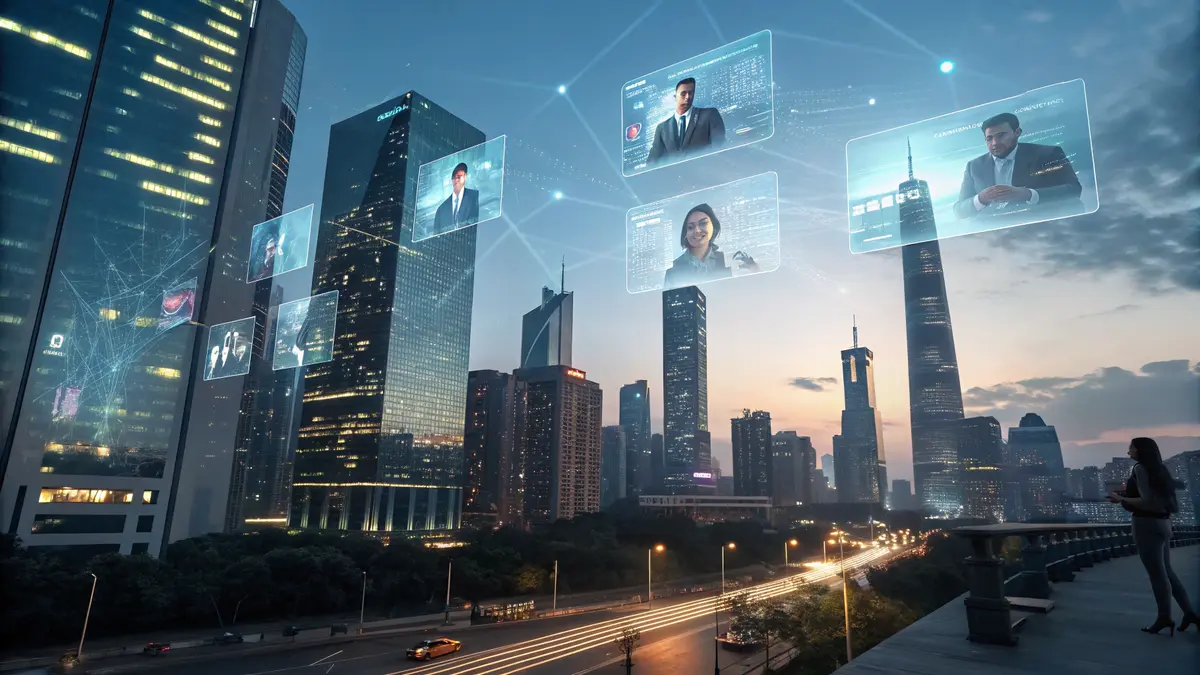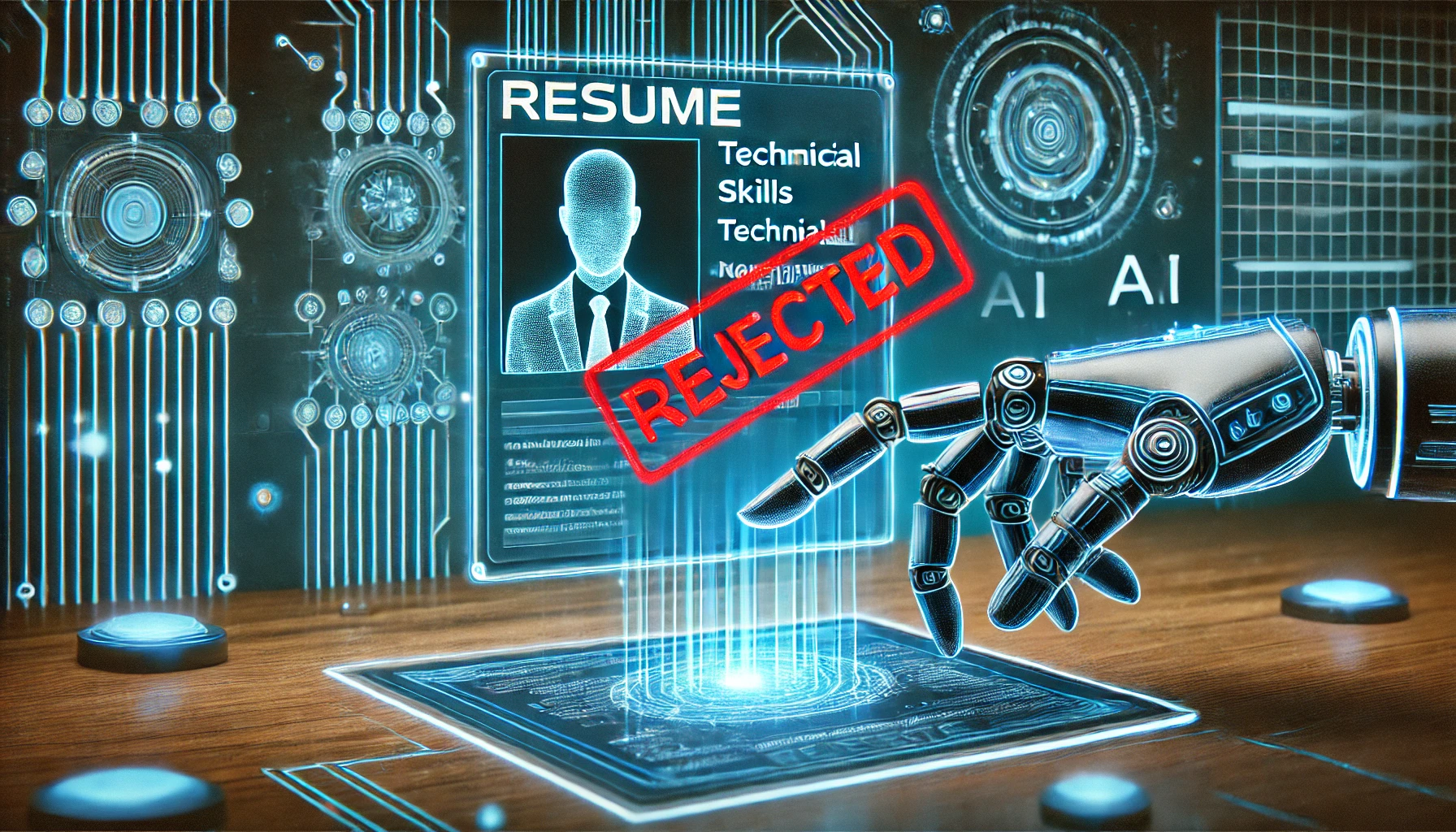AI and workforce trends are reshaping the future of jobs, demanding new skills, and creating opportunities and challenges in every industry. Artificial intelligence (AI) is no longer a thing of science fiction—it’s here, happening, and changing the game for everyone. We’re talking about a seismic shift, a real turning point akin to the Industrial Revolution, but instead of steam, it’s all about algorithms. This report will analyze just how deep this goes. We’ll look into the current state of play, what the experts are saying about the future, which jobs are front and center in this transformation, and how we can all get our act together to adapt.
- The AI Revolution: Are We There Yet?
- Leader vs. Employee: It’s a Perception Gap
- What the Reports Are Saying
- The Crystal Ball: Job Displacement vs. Creation
- Generative AI: The Automation Game Changer
- Labor Demand: What’s Going Up, What’s Going Down
- Jobs in the Crosshairs: Roles at High Risk
- The Rise of New Jobs: AI’s Silver Lining
- Industry Deep Dive: AI’s Impact Across Sectors
- The New Skill Set: What You Need to Know
- Closing the Gap: Upskilling and Reskilling
- Government and Industry: The Response
- A Word of Caution: Ethical and Societal Considerations
- Success Stories: AI in Action
- Looking Ahead: Navigating the AI Future
- Action Plan: What You Can Do
- FAQ on AI and the Workforce
And, because navigating this new world requires a bit of savvy, remember to check out this handy guide on mastering Ethical Prompts in AI. You know, to keep things on the up-and-up.
The AI Revolution: Are We There Yet?
So, everyone’s throwing money at AI, right? Turns out, yeah, pretty much. A solid 92% of companies are planning to pump up their AI investments in the next three years. They’re not just doing it for kicks; they’re looking at AI to seriously boost their game.
But here’s the kicker: even with all this cash flying around, only a tiny fraction (we’re talking 1%) of companies have fully grown AI setups. It’s like everyone’s bought the fancy gym membership but only a few are hitting the weights. And with generative AI (think ChatGPT) exploding onto the scene, things are moving at warp speed. Investments here have gone through the roof since late 2022.
Of course, not every industry is on the same page. Tech companies are leading the charge, while others, like construction, are lagging.
Leader vs. Employee: It’s a Perception Gap
There’s a bit of a “Lost in Translation” situation going on between the big bosses and the workers when it comes to AI. Leaders tend to underestimate how much their employees are already using AI tools. For instance, execs think only about 4% of employees are deep into generative AI, but the real number is more like 13%. Employees are also way more optimistic about AI taking over tasks.
While many employees are pretty pumped about AI, there’s still a chunk (41%) who are a bit wary. Meanwhile, a lot of leaders (47%) are sweating it because they feel like their companies aren’t adopting AI fast enough, mainly due to a lack of skilled people.
What the Reports Are Saying
Reports from the big guns like McKinsey and the World Economic Forum (WEF) are dropping some interesting insights. McKinsey, in their “Superagency in the Workplace” report, suggests AI could be more about boosting human skills than replacing them. The WEF is predicting a net gain in jobs, with AI creating way more jobs than it wipes out by 2030. However, the International Labour Organization (ILO) is throwing a bit of a curveball, warning that generative AI could automate a ton of jobs globally.
To keep your AI game strong and ethical, remember to check out some tips on Ethical Prompts. It’s like having a good co-pilot on this AI flight.
Here’s a quick look at the leader vs. employee take on AI adoption:
| Metric | Leader Estimate (%) | Employee Report (%) |
| Current Gen AI Usage for >30% of Daily Tasks | 4 | 13 |
| Anticipated Gen AI Usage for >30% within 1 Year | 20 | 47 |
Overall, we’re seeing a mix of rapid AI adoption, differing views on its impact, and predictions of both job creation and loss. The skills gap is a big issue, but there’s a growing idea that AI could be more of a sidekick than a replacement for workers.
The Crystal Ball: Job Displacement vs. Creation
Experts are all over the map when it comes to predicting job displacement. Goldman Sachs says AI could affect a huge chunk of jobs, with generative AI potentially replacing up to a fourth of current work. McKinsey is also throwing out some big numbers for potential automation by 2030.
On the flip side, the WEF is pretty optimistic, forecasting a net gain of millions of jobs by 2030. The Institute for Global Change suggests we might see a temporary spike in unemployment, but AI should ultimately boost job growth.
Generative AI: The Automation Game Changer
Generative AI is seriously speeding up the automation train, hitting even those high-skilled jobs that used to seem untouchable. McKinsey’s models are showing a big jump in potential automation by 2030, thanks to generative AI. The International Monetary Fund (IMF) points out that this wave of AI is different because it can handle complex cognitive tasks. This could lower the bar for some jobs, but it’s also going to change how we use knowledge and solve problems.
Labor Demand: What’s Going Up, What’s Going Down
AI is expected to shake up the demand for different jobs. We’re likely to see more demand for STEM fields, healthcare, and other high-skill jobs. On the other hand, roles like office clerks, production workers, and customer service reps might see a decline. The skills we value will also change, with a bigger need for tech skills and human skills like critical thinking and creativity.
Jobs in the Crosshairs: Roles at High Risk
Certain jobs are looking particularly vulnerable to automation. The ILO is flagging roles like typists, travel advisors, and bank clerks. Academic research is echoing this, adding customer service reps, some programmers, and paralegals to the list. The WEF is also pointing at administrative roles as being at high risk.
Here’s a quick rundown:
| Job Role | Supporting Source(s) |
| Typists | ILO Study |
| Travel Advisors | ILO Study |
| Bank Clerks | ILO Study, Academic Research |
| Contact Center Clerks | ILO Study |
| Market Researchers | ILO Study |
| Customer Service Reps | Academic Research |
| Insurance Clerks | Academic Research |
| Some Computer Programmers | Academic Research |
| Research Analysts | Academic Research |
| Paralegals | Academic Research |
| Factory/Warehouse Workers | Academic Research |
| Administrative Roles | WEF Report |
The Rise of New Jobs: AI’s Silver Lining
But it’s not all doom and gloom. AI is also creating new job opportunities. We’re seeing the emergence of roles like AI ethicist, machine learning engineer, and AI trainer. There’s also a growing need for data analysts, human-machine teaming managers, and AI ethics and policy specialists. The WEF is highlighting the growth of tech-focused roles like big data specialists and AI specialists.
Here are some of the new roles popping up:
| Job Role | Description | Supporting Source(s) |
| AI Ethicist | Focuses on the ethical implications of AI development and deployment | Academic Research |
| Machine Learning Engineer | Builds and maintains AI systems | Academic Research |
| AI Trainers and Teachers | Responsible for training AI systems and educating others on their use | Academic Research |
| Data Analysts and Scientists | Analyze the vast amounts of data generated by AI | Academic Research |
| Human-Machine Teaming Managers | Manage the interaction between humans and AI systems | Academic Research |
| AI Ethics and Policy Specialists | Address the ethical and policy implications of AI | Academic Research |
| Big Data Specialists | Focus on managing and analyzing large datasets | WEF Report |
| Fintech Engineers | Develop AI solutions in the financial tech sector | WEF Report |
| AI Specialists | Focus on the development and application of AI technologies | WEF Report |
Industry Deep Dive: AI’s Impact Across Sectors
AI is making waves across various industries. In manufacturing, companies like Tesla are using robots to automate assembly lines. Healthcare is seeing AI used for diagnostics and personalized treatment. Finance is leveraging AI for fraud detection and risk assessment. Customer service is getting a makeover with AI-powered chatbots. Even education is exploring AI for personalized learning.
The New Skill Set: What You Need to Know
To thrive in the AI-driven economy, you’ll need a mix of skills. AI literacy is becoming essential across the board. Prompt engineering (basically, knowing how to talk to AI) is also a hot skill. Of course, core tech skills like data analytics and machine learning are still crucial. And with increased connectivity comes increased risk, so cybersecurity skills are more important than ever.
But it’s not just about the tech stuff. Human skills like creativity, critical thinking, and emotional intelligence are also becoming super valuable. As AI takes over routine tasks, these uniquely human skills will set you apart.
Here’s a breakdown:
| Skill Category | Specific Skills | Importance/Description |
| Technical | AI Literacy | Basic understanding of AI concepts, tools, and applications |
| Technical | Prompt Engineering | Ability to effectively interact with and instruct AI systems |
| Technical | Proficiency with AI Tools (e.g., ChatGPT, Copilot) | Practical experience in using popular AI platforms |
| Technical | Data Analytics | Analyzing and interpreting data, often generated by AI systems |
| Technical | Machine Learning | Understanding and applying machine learning algorithms |
| Technical | Programming | Developing and maintaining AI software and applications |
| Technical | Cybersecurity | Protecting AI systems and data from cyber threats |
| Human | Creativity | Generating novel and innovative ideas |
| Human | Critical Thinking | Analyzing information and making reasoned judgments |
| Human | Emotional Intelligence | Understanding and managing emotions |
| Human | Communication | Effectively conveying information and ideas |
| Human | Problem-Solving | Identifying and resolving complex issues |
| Human | Adaptability | Adjusting to changing circumstances and new technologies |
| Human | Ethical Decision-Making | Making choices based on moral principles and values |
Closing the Gap: Upskilling and Reskilling
There’s a significant skills gap that needs to be addressed. This gap is hindering AI adoption and could lead to economic inequality. To tackle this, individuals need to take charge of their learning, companies need to invest in training, and governments need to step up with supportive policies. Building digital skills across the board is crucial.
For individuals, lifelong learning is key. There are tons of online platforms and resources available for learning AI-related skills. Bootcamps and workshops offer more intensive training. Companies are also starting to prioritize upskilling, with some using AI-powered learning platforms to personalize training. These platforms can assess skills gaps, personalize learning, and track progress.
Government and Industry: The Response
Governments worldwide are starting to create policies around AI and employment. We’re seeing initiatives at the federal and state levels to address things like bias in AI hiring and employee data privacy. There are also programs for workforce retraining in AI.
The tech industry is also stepping up, with companies like Cisco and IBM offering AI training and resources. Public-private partnerships are becoming more common, bringing together different players to develop effective training programs.
A Word of Caution: Ethical and Societal Considerations
As we embrace AI, we need to consider the ethical and societal implications. AI bias is a major concern, particularly in hiring and performance reviews. We need to ensure AI systems are fair and transparent.
Employee surveillance through AI is also raising privacy concerns. There’s a need for clear rules to protect employee privacy.
The broader socio-economic impacts are also important. AI could worsen economic inequalities and affect work-life balance. We need ethical AI governance to balance progress with societal well-being.
Success Stories: AI in Action
Despite the challenges, there are many success stories of organizations and individuals adapting to the AI age. Companies like Microsoft, Tesla, and Amazon are seeing big gains from AI adoption. Individuals are also upskilling and finding new career paths in AI.
Here are a few examples:
| Company | Industry | AI Application | Key Outcome(s) |
| Microsoft | Technology | Microsoft 365 & GitHub Copilot | Productivity gains, time savings in coding & document creation |
| Tesla | Manufacturing | Advanced Robotics | Increased production speed and scale |
| Amazon | Retail | Warehouse Automation & Recommendation Systems | Efficient inventory management, personalized customer experience |
| UPS | Transportation | Route Optimization | Increased efficiency, reduced environmental impact |
| JPMorgan Chase | Finance | Fraud Detection & Back-Office Automation | Enhanced security, improved efficiency |
| Mayo Clinic | Healthcare | Diagnostic Tools | Improved patient care |
| KLM | Airlines | Customer Service Chatbot | Efficient handling of customer inquiries |
| Department of Labor | Government | AI Chatbots | Efficient public inquiry handling, streamlined procurement |
Looking Ahead: Navigating the AI Future
The integration of AI is a major shift with big implications. We need to focus on developing both technical and human skills, closing the skills gap, and addressing ethical concerns. By doing this, we can create a future where AI enhances our abilities and drives positive change.
To make the most of this AI revolution, remember that having a good handle on Ethical Prompts is super important. It’s about guiding AI, not just being driven by it.
Action Plan: What You Can Do
For Individuals:
- Commit to lifelong learning and identify AI skills for your career path.
- Use online platforms and resources to learn AI, data science, and related skills.
- Develop both technical skills (AI literacy, prompt engineering, data analysis) and human skills (creativity, critical thinking, emotional intelligence).
- Build an AI project portfolio to showcase your skills.
- Engage with the AI community to stay updated and network.
For Businesses:
- Develop a clear AI strategy aligned with your business goals.
- Invest in upskilling programs for your workforce.
- Foster a culture of learning and experimentation with AI.
- Prioritize ethical considerations and address potential biases in AI systems.
- Be transparent with employees about AI implementation.
- Explore human-AI collaboration to boost productivity and innovation.
For Policymakers:
- Develop policies and regulations for AI in the workplace, focusing on ethics, privacy, and worker rights.
- Invest in public sector AI training and support workforce retraining initiatives.
- Encourage partnerships between government, industry, education, and labor to address the skills gap.
- Support workers displaced by AI with safety nets and retraining resources.
- Fund research on AI’s impact on the labor market to inform policy decisions.
FAQ on AI and the Workforce
Q1: How is AI currently impacting the workforce?
AI is rapidly being adopted across industries, but its implementation is still in the early stages. There’s a perception gap between leaders and employees regarding AI’s current use and future impact. AI is automating routine tasks and creating new job opportunities, but it also poses challenges like job displacement and the need for upskilling.
Q2: What are the predictions for AI’s impact on future jobs?
Experts predict both job displacement and creation due to AI. Some reports suggest significant job displacement, while others are more optimistic about AI’s potential to create new jobs. Generative AI is accelerating automation and impacting high-skilled professions.
Q3: Which job roles are most at risk of automation?
Roles involving routine and codifiable tasks are most vulnerable. Examples include typists, travel advisors, bank clerks, customer service representatives, and some computer programmers. Administrative roles are also at high risk.
Q4: What skills are essential for workers in the AI era?
Both technical and human skills are crucial. Technical skills include AI literacy, prompt engineering, data analytics, and cybersecurity. Human skills like creativity, critical thinking, emotional intelligence, and communication are also increasingly important.
Q5: What are the ethical considerations surrounding AI in the workplace?
Key ethical concerns include the potential for bias and discrimination in AI algorithms, privacy issues related to employee surveillance, and the broader socio-economic impacts of AI adoption. It’s crucial to address these concerns to ensure fairness, protect privacy, and promote equitable outcomes.












